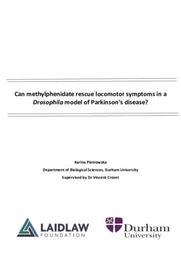Global Citizenship and Ethical Leadership- A Reflection
Bad science. Fake data. Addiction. Homelessness. What these have in common will be the point of this post. The crux of it is this: to help combat the problem of data manipulation and unreproducible research, it is important to know why we are doing that research, and who we are helping. As an aspiring researcher, I have the Laidlaw scholarship to thank for teaching me what it means to be an ethical citizen, an ethical scientist, and an ethical leader.
One way of combating the problem of irreproducible, and sometimes outright fake data, is by actually meeting the people we are supposed to be helping. If a scientist is researching cancer treatments, it would be wise for them to meet, and talk to cancer patients. If a scientist is researching the use of pesticides, talking to the farmers who use these pesticides is important. As someone with a long-standing interest in addiction, and the molecular mechanisms behind it, it was (and is) important for me to talk to people who have experienced addiction. Hence my choice of LiA project, which relates to helping people who are homeless, and often suffering from substance use disorders.
From my own, and other’s experience, I have learned it is all too easy to get caught up in metrics- from grades and results to h-indexes and impact factors of journals. This is a dangerous game. When metrics measuring success become the definition of success itself, they have stopped being useful metrics. In fact, losing sight of the reasons behind why we do research can lead to burnout, monotony and, in extreme cases, it leads to outright data fraud. However, all of us, no matter what career we choose, can be part of the solution. As Laidlaw scholars, I have no doubt we can combat the problem of fake, or irreproducible data through policy changes, reliable data practices and an increased awareness of the issue.
Though I could write much more about the data manipulation/reproducibility in science, I will stop and shift the focus back to my journey as a Laidlaw scholar, without which all these considerations would be rendered moot. After all, it is the Laidlaw scholarship which gave me my first taste of research, and allowed me to connect my interest in molecular neuroscience, with real-life stories about addiction (and recovery).
When I first joined the fly lab, it was so exciting! It still is! There is a world of information just waiting to be discovered, and learning new things about the world is immensely gratifying. The detail with which we can look into the fly brain is dizzying- from expressing a specific receptor in a specific set of neurons, and using the connectome to see the neuronal wiring in real life. The best part is how this knowledge can be applied to learn more about addiction and the memories underlying it. From neurotransmitters to neural wiring, there is so much to discover. The second summer, I talked to people suffering from, and recovering from addiction. I learned how to organize my own project tailored to my needs, and faced the horrifying reality that treatments for addiction are few and far between. We still have so much to learn about this disorder.
Ultimately, this research journey I have started, this journey trying to change attitudes towards addiction and create better research practises is just the beginning! A sentiment shared, I’m sure, by all Laidlaw scholars is that the journey we have started here, all the experiences and information we have learned will be the first stepping-stone in changing the status-quo, and paving the way for a future where our efforts drive meaningful progress in our respective fields and beyond. I am so grateful for the things I learned along the way, the friends I made and the memories I created! :)


Please sign in
If you are a registered user on Laidlaw Scholars Network, please sign in